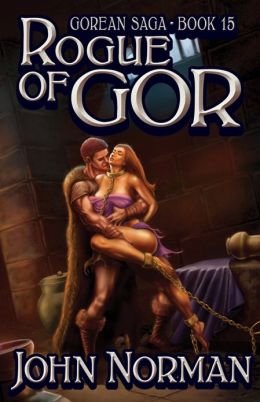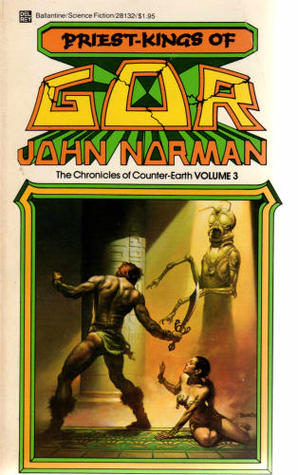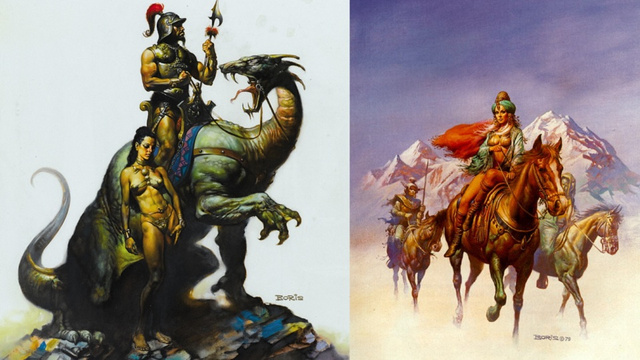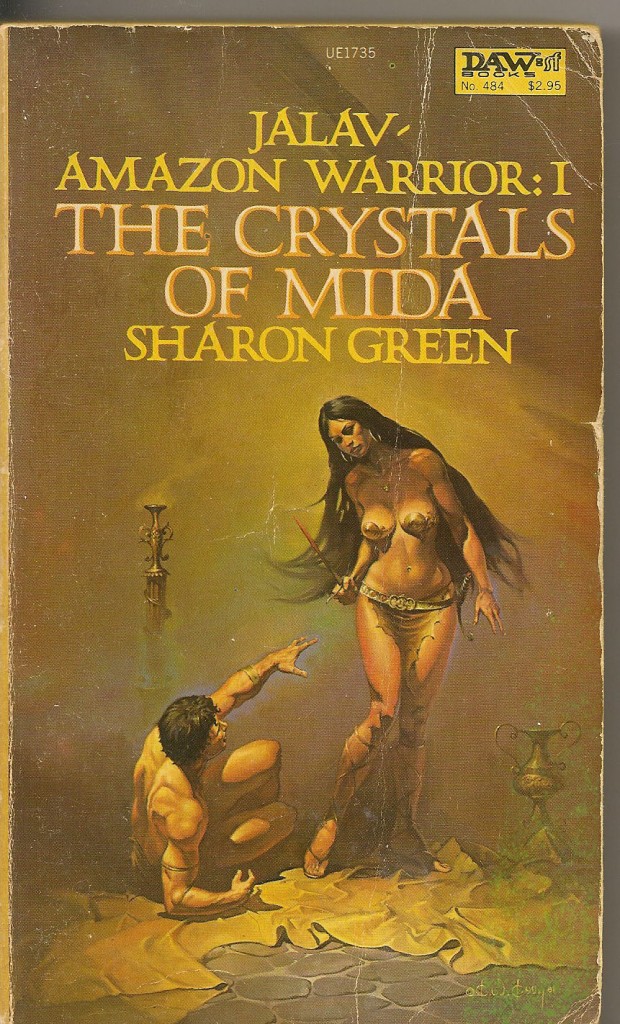When I was a kid, I always swore I would never be like the old-timers of the day. You know the type. Always complaining about the country going to hell in a handbasket and how we were too young to realize what we had already lost. How we scoffed at their foolishness. After all, we were the generation that had invented sex and were going to save the world with our forward thinking. Now, I am that guy and wish those old-timers were still around so I could apologize. Accuse me of being a free speech extremist and I will gladly confess.
I mentioned in my last post some books and authors that were once common and relatively mild, but are now considered subversive due to their non-progressive themes and values. Others were more daring and controversial, but still were dutifully stocked wherever books and magazines were sold. There once was a time when people who invoked free speech meant it. The old-timers were right. We have lost a lot and we’re losing more every day. It’s amazing how the PC crowd has managed to give us a world that’s prudish and crass at the same time.
In my hometown we had a bookstore run by the most devout Christian you ever met. He always closed on Sundays so he could attend church. He also stocked the most extensive inventory of girlie magazines in town. I asked about the apparent contradiction and he told me it wasn’t his place to say what other adults should read. My step-mother would use her employee discount at work to buy those same magazines which she brought home for my father. Mandingo sat in the bookrack at your local supermarket next to The Cross and the Switchblade. There were the obligatory busybodies of course, but mostly what you wanted to read was your own business and nobody would blink an eye at your choices. Fortunately, the enlightened few dragged us out of these benighted dark-ages for our own good.
Which brings us to the books by John Norman and Sharon Green—science fiction with a difference. At one time they were as ubiquitous  as roaches, and often as highly regarded. The critics savaged them. The general public considered them obnoxious, when they considered them at all. These books occupied the antipodes of Political Correctness. It was hard to find anyone who would admit to reading them, much like the missing disco music fans today, but they sold and sold and sold, going through printing after printing. There was a niche out there and those books fit in it like a hand in a glove. These are not literary masterpieces by any measure, but of the two, Sharon Green is by far the better writer.
as roaches, and often as highly regarded. The critics savaged them. The general public considered them obnoxious, when they considered them at all. These books occupied the antipodes of Political Correctness. It was hard to find anyone who would admit to reading them, much like the missing disco music fans today, but they sold and sold and sold, going through printing after printing. There was a niche out there and those books fit in it like a hand in a glove. These are not literary masterpieces by any measure, but of the two, Sharon Green is by far the better writer.
John Norman (real name John Lange) is a philosophy professor at Queens College in New York. He has some ideas, especially concerning male-female relationships, that could be accurately described as retrograde in the current milieu. His first book, Tarnsman of Gor (1966), the first of many in the Gor series (also known by other names) is a blatant rip-off of Edgar Rice Burroughs’s A Princess of Mars with a tad more raunch. The word “misogynistic” gets thrown around a lot in discussions of Norman’s work.
 Norman’s works could reasonably be dismissed as a juvenile (in the sense of immature) indulgence of male fantasy. A strange thing happened on the way to the forum though. The books are very, very popular with women—at least a certain subset of women. I used to take the “pocket books” idea very literally and I kept a paperback in my back pocket everywhere I went. When I tackled the Gor stories, an odd thing happened. I was approached by women—a lot of women. The conversation usually went something like this: “Oh! You’re reading the Gor books! They are so good!” This never happened with a man. I eventually read 25 of the books. They were OK at first, but an ordeal by the end. Norman never misses a chance to push his philosophy, resulting in absurdities like the protagonist taking the time during a kidnapping to explain to the victim her proper role as a woman—for 93 pages. In another book, the protagonist and a comrade take the time during a battle to discuss a woman at great length—a battle that’s going badly. A critic once remarked that the series starts as fair science fiction, but rapidly degenerates into pornography and travelogue. That is a reasonable assessment. If your curiosity is piqued enough to give the series a try, confine yourself to the first 5 books. Assassin of Gor (#5) is most popular, followed closely by Nomads of Gor (#4), but I thought Priest-Kings of Gor (#3) was best. If you wish to experience the decay, read to Hunters of Gor (#8). Going any further is just masochism.
Norman’s works could reasonably be dismissed as a juvenile (in the sense of immature) indulgence of male fantasy. A strange thing happened on the way to the forum though. The books are very, very popular with women—at least a certain subset of women. I used to take the “pocket books” idea very literally and I kept a paperback in my back pocket everywhere I went. When I tackled the Gor stories, an odd thing happened. I was approached by women—a lot of women. The conversation usually went something like this: “Oh! You’re reading the Gor books! They are so good!” This never happened with a man. I eventually read 25 of the books. They were OK at first, but an ordeal by the end. Norman never misses a chance to push his philosophy, resulting in absurdities like the protagonist taking the time during a kidnapping to explain to the victim her proper role as a woman—for 93 pages. In another book, the protagonist and a comrade take the time during a battle to discuss a woman at great length—a battle that’s going badly. A critic once remarked that the series starts as fair science fiction, but rapidly degenerates into pornography and travelogue. That is a reasonable assessment. If your curiosity is piqued enough to give the series a try, confine yourself to the first 5 books. Assassin of Gor (#5) is most popular, followed closely by Nomads of Gor (#4), but I thought Priest-Kings of Gor (#3) was best. If you wish to experience the decay, read to Hunters of Gor (#8). Going any further is just masochism.
Sharon Green came to be a writer because she read a few of the Gor books and thought John Norman got it all wrong. She believed that Norman “doesn’t understand female submission.” She embarked on her own series of books where, strangely, the female protagonist winds up in basically the same situations as in the Gor books, just for different reasons. Her books were intended as a rebuttal to Norman. Fate was cruel, however, as her books appealed to the same audience and she was dubbed “the female John Norman.” Jalav, the female protagonist of the Jalav—Amazon Warrior series is tedious in her own right, endlessly whining about being reduced to a sex slave instead of being allowed to die a noble warrior’s death.
Whatever the shortcomings of these books, however, the fact remains that the freedom of speech is near absolute. Norman and Green had every right to write their books, and their fans had every right to read them. Most importantly, you have the right to read them if you so choose. The good times were coming to an end though. Both authors were published by Donald A. Wollheim of DAW books. In 1990, Wollheim died and was succeeded by his uber-feminist daughter, Elizabeth Wollheim. Virtually her first act was to order a halt to printing of Noman’s and Green’s books, on the unlikely justification of poor sales. It is commonly believed that the truth was that she objected to them personally. The books disappeared quickly from mainstream bookstores, then from used book stores. Interested readers couldn’t find copies for love nor money for many years. Green would reinvent herself as a more mainstream SF and fantasy author. Norman would disappear from print for 13 years. Green would comment later that it would be impossible to publish her early works in the current climate.
Technology would come to the rescue as it often does. Alternative publishing brought the old books back from Never-Never Land and allowed new books to be published. The vital thing is that, whatever their artistic merits, both authors were punished for their beliefs, opinions, and self-expression, as usual by the self-appointed arbiters of tolerance and open-mindedness. The principle at stake here is far more important than the books themselves. Read the books or don’t. It’s your business. The fact remains, however, there are droves of people for whom the Constitution is a punchline—and that’s terrifying. Popular speech by definition needs no protection. Beware, the Left never sleeps, and the battleground is your mind.


